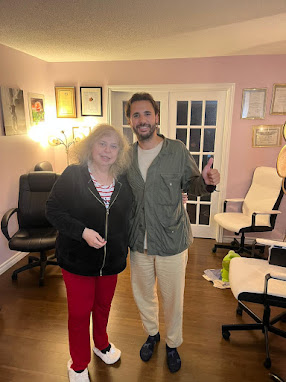Vocal Cord Paralysis - What Could Be The Causes & How To Deal With Them?
Vocal cord paralysis, also known as the vocal cord paresis, is the inability of one or both vocal cords to move. It can greatly impact the daily life of the sufferer, including, job, social interactions and leisure time activities.
The condition is caused by damage to nerves going to the vocal cords-the nerve impulses in the larynx are interrupted, resulting in the paralysis of the vocal cord muscles.
Patients with vocal paralysis typically experience hoarseness, vocal fatigue, mild to a severe reduction in speech volume, a pain in the throat when speaking, and swallowing things down the wrong way and choking.
Signs and symptoms of vocal cord paralysis include:
• Changes to the voice
• Hoarseness
• Noisy Breathing
• Changes to vocal pitch
• Coughs that do not clear the throat properly
• Voice volume may be affected
Treatment for vocal cord paralysis
The treatment for vocal cord paralysis depends on several factors, including what caused it, how severe the symptoms are, and how long they have been present.
Voice therapy: Equivalent to physical therapy for large muscle paralysis, can be beneficial for sufferers of this condition. There is an alternative form of voice therapy which incorporates some specific exercises and some other activities that will strengthen the vocal cords. You might also learn how to use your voice in a different way. And as a result, the voice disorder sufferer will know how to effectively utilize the maximum potential of their voice; while, at the same time, minimizing the chance of the voice disorder reappearing in the future.
Surgery & Alternatives: As a last resort, if the patient does not recover totally with the voice therapy, the doctor may recommend a vocal cord surgery. But, as indicated in the above paragraph, there is an alternative method of voice recovery/rehabilitation that will ‘get the job done’ without the need for surgery. This is known as non-surgical voice repair.
If you notice any unexplained voice changes or discomfort, you can consult Diana Yampolsky at The Royans Institute for Non-Surgical Voice Repair. One of the world’s foremost specialists, she works with a wide spectrum of clientele as a Voice Coach, Consultant, and Non-Surgical Voice Repair Specialist.
For more information regarding vocal cord paralysis or if you, or a loved one, are suffering from any voice problems/disorders, contact The Royans Institute for Non-Surgical Voice Repair at: Info@vocalscience.com | 416-857-8741



.jpg)

Comments
Post a Comment